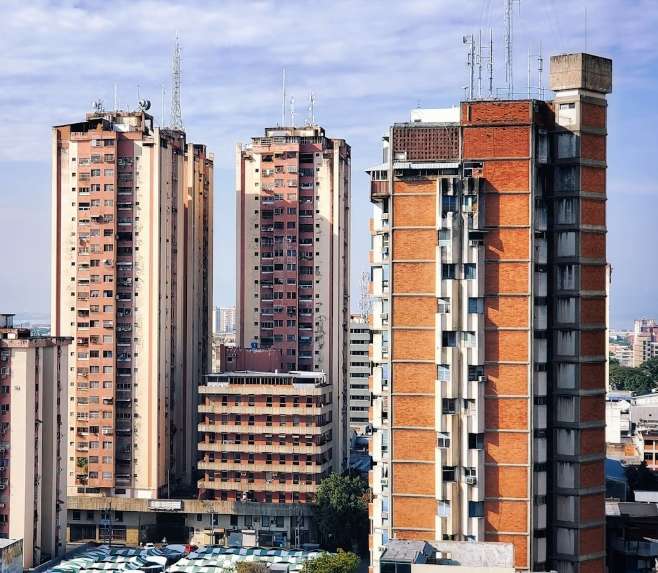Venezuela Accepts Repatriation Agreement for Undocumented Migrants from the United States.
Venezuela’s Agreement to Repatriate Undocumented Migrants: A Shift in US-Venezuela Relations and Trump’s Immigration Policy
Former US President Donald Trump announced that Venezuela has agreed to repatriate all undocumented Venezuelan migrants detained in the United States, including members of the notorious Tren de Aragua gang. This surprising development marks a significant shift in the often-strained relationship between the two countries and raises questions about the future of Venezuelan migrants in the US. The agreement came after a meeting between Venezuelan President Nicolás Maduro and Richard Grenell, a senior Trump administration official. The meeting also resulted in the release of six American detainees held in Venezuela, suggesting a potential thaw in diplomatic relations. While the Venezuelan government has yet to confirm the terms of the repatriation agreement, Trump’s announcement highlights his administration’s continued focus on stricter immigration enforcement.
The repatriation agreement appears to be a part of a broader strategy by the Trump administration to address undocumented immigration. Trump has previously threatened sanctions against Colombia for resisting deportation flights, leading to Colombia’s eventual acceptance of the migrants. This hardline approach aligns with Trump’s campaign promises and previous executive orders aimed at accelerating deportations. However, the agreement with Venezuela represents a notable departure from Trump’s earlier stance on Venezuelan immigrants. Before leaving office in 2021, he had signed an executive order protecting them from deportation, recognizing the political instability and humanitarian crisis in their home country.
The current agreement, however, focuses specifically on undocumented Venezuelan migrants, including members of the Tren de Aragua gang. This notorious criminal organization, originating in Aragua, Venezuela, has gained a reputation for its involvement in various illicit activities, including extortion, kidnapping, and drug trafficking. Their presence among the undocumented migrants has raised concerns about public safety and further fueled the debate surrounding immigration policy. While the Venezuelan government’s willingness to accept these individuals back into the country signals a potential willingness to cooperate with the US on security matters, it also raises questions about the capacity and willingness of Venezuelan authorities to effectively address the criminal activities of these repatriated gang members.
The agreement’s implications for the larger Venezuelan migrant community in the US remain uncertain. While the agreement explicitly targets undocumented migrants, the Trump administration’s recent decision to end Temporary Protected Status (TPS) for approximately 600,000 Venezuelans adds another layer of complexity. TPS, granted by the Biden administration, provided temporary legal status and protection from deportation for these individuals. The revocation of TPS could potentially expose a significant number of Venezuelans to deportation, even if they have established lives and families in the US. This decision has already drawn criticism and is expected to face legal challenges, further complicating the situation for Venezuelan migrants.
The legal challenges to the termination of TPS are anticipated to be based on the argument that Trump cannot unilaterally undo actions taken by his predecessor. Legal experts point to established legal precedents and argue that Venezuelans with TPS have valid work permits and a strong legal basis to remain in the US. Previous attempts by the Trump administration to end TPS for other countries, such as El Salvador, Haiti, and Sudan, were blocked by courts, highlighting the potential legal hurdles facing the current decision. Furthermore, thousands of Venezuelans with TPS also have approved asylum applications, granting them legal status regardless of the TPS decision. This further complicates the issue and raises questions about the scope and enforceability of the repatriation agreement.
The repatriation agreement and the termination of TPS represent a dramatic shift in US policy towards Venezuelan migrants. While the agreement addresses the specific issue of undocumented migrants and gang members, the TPS decision has broader implications for a significant portion of the Venezuelan community in the US. The legal challenges expected to arise from the TPS decision will likely shape the future of these individuals and could potentially impact the broader debate on immigration policy. The long-term consequences of these policy changes, both for the US and Venezuela, remain to be seen. The agreement also introduces a new dimension to the complex US-Venezuela relationship, potentially opening doors for further dialogue and cooperation on other issues of mutual interest. However, the lack of official confirmation from the Venezuelan government regarding the repatriation agreement adds an element of uncertainty to the situation. The evolving nature of this situation requires careful monitoring and analysis to understand its full implications for both countries and the affected individuals.
Share this content:












Post Comment